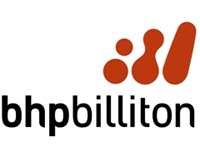| . |  |
. |
Washington (AFP) Sept 19, 2009 The US Justice Department has advised a court to reject a legal settlement between Google and authors and publishers that would allow the Internet giant to scan and sell millions of books online. The Justice Department, in a filing late Friday with a US District Court in New York, said the class action settlement raises copyright and anti-trust issues but it encouraged the parties to continue their discussions to address its concerns. "This Court should reject the Proposed Settlement in its current form and encourage the parties to continue negotiations to modify it," the department said in a 32-page filing submitted to the court. "The public interest would best be served by direction from the Court encouraging the continuation of those discussions," it said. US District Court Judge Denny Chin is to hold a hearing on October 7 on the class action settlement reached in October between Google and the Authors Guild and the Association of American Publishers to a copyright infringement suit they filed against the Mountain View, California, company in 2005. Under the settlement, Google agreed to pay 125 million dollars to resolve outstanding claims and establish an independent "Book Rights Registry," which would provide revenue from sales and advertising to authors and publishers who agree to digitize their books. Google rivals Microsoft, Amazon and Yahoo! have filed objections to the settlement with the court along with the French and German governments, privacy advocates and consumer watchdog groups. Sony Electronics of Japan, maker of the electronic book reader the Sony Reader, and a group of 32 US professors of law and economics, have filed briefs supporting the deal. In its filing, the Justice Department proposed a number of changes to the agreement that it said would help address its concerns. They included imposing limitations on the most open-ended provisions for future licensing, providing additional protections for unknown rights holders and addressing the concerns of foreign authors and publishers. The Justice Department also proposed setting up a mechanism by which Google's competitors can gain comparable access to book collections. "The Proposed Settlement has the potential to breathe life into millions of works that are now effectively off limits to the public," the department said. "Nonetheless, the breadth of the Proposed Settlement -- especially the forward-looking business arrangements it seeks to create -- raises significant legal concerns." The department said that presently, the settlement would give Google sole authority over so-called "orphan works" -- books whose copyright holder cannot be found -- and books by foreign rightsholders. "The Proposed Settlement raises concerns about the adequacy of representation afforded to absent class members, especially owners of 'orphan' out-of-print works and foreign rightsholders," it said. "The Proposed Settlement operates to sweep in untold numbers of foreign works, whose authors, under current law, are not required to register in the same manner as US rightsholders," it said. The Justice Department said its investigation into whether the settlement violated US anti-trust provisions was "not yet complete" but it did express concerns. "In the view of the Department, the Proposed Settlement raises two serious issues," it said. "First, through collective action, the Proposed Settlement appears to give book publishers the power to restrict price competition. "Second, as a result of the Proposed Settlement, other digital distributors may be effectively precluded from competing with Google in the sale of digital library products and other derivative products to come," it said. The Justice Department's opinion comes a week after the head of the US Copyright Office argued that the book deal violates "fundamental copyright principles." Marybeth Peters, the US Register of Copyrights, said the settlement "absolves Google of the need to search for the rights holders or obtain their prior consent and provides a complete release from liability. "It could affect the exclusive rights of millions of copyright owners, in the United States and abroad, with respect to their abilities to control new products and new markets, for years and years to come," she said. Share This Article With Planet Earth
Related Links Global Trade News
 BHP predicts booming demand in China, India
BHP predicts booming demand in China, IndiaSydney (AFP) Sept 16, 2009 The world's biggest miner BHP Billiton on Wednesday said key market China was well on the road to economic recovery and would underpin a boom in resources demand in coming decades. Chief commercial officer Alberto Calderon said China's growth recovery was "gaining momentum" and the worst of the global downturn appeared to be over in the developed nations. "China looks good, India looks ... read more |
|
| The content herein, unless otherwise known to be public domain, are Copyright 1995-2009 - SpaceDaily. AFP and UPI Wire Stories are copyright Agence France-Presse and United Press International. ESA Portal Reports are copyright European Space Agency. All NASA sourced material is public domain. Additional copyrights may apply in whole or part to other bona fide parties. Advertising does not imply endorsement,agreement or approval of any opinions, statements or information provided by SpaceDaily on any Web page published or hosted by SpaceDaily. Privacy Statement |